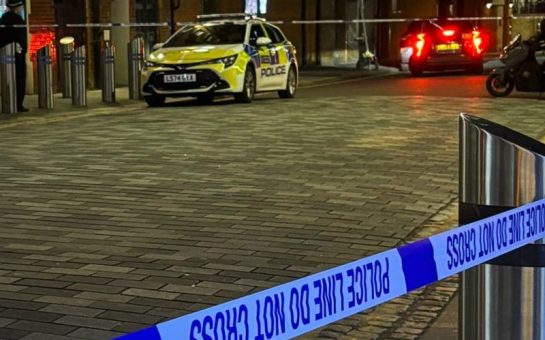Shocking delays to ambulances attending the most severe 999 callouts are putting lives at risk in the capital, a leading union has warned.
The GMB union said it has been ‘raising the alarm’ on increasing demand and reduced staffing levels ‘for years’, as it begins balloting thousands of ambulance staff over strike action.
The warning comes amid the deepening cost of living crisis which is expected to cripple the NHS this winter due to an increase in poverty-related hospital admissions.
GMB representative Holly Turner, said: “We are left with an extremely dangerous recruitment and retention crisis, with staff sickness levels soaring, and a terrifying risk to life due to overstretched services.
“Pay is intrinsically linked to safety, which is why ministers must take immediate and urgent action to lift pay in line with inflation. If they choose not to, staff will be left with no option but to strike.”
Requiring an immediate response to a life-threatening condition, Category 1 calls relate to incidents such as an individual suffering a cardiac or respiratory arrest, and warrant intervention in under seven minutes.
But figures obtained by Freedom of Information requests submitted to the London Ambulance Service revealed that, since 2018, ambulance crews did not attend 193,312 emergency callouts graded as Category 1 with the seven-minute response time.
One NHS 111 call operator, who wished to remain anonymous, described the immense distress facing patients experiencing delays, with significant impacts on NHS staff battling against a huge surge in demand.
They said: “The pressure facing staff is huge and we are constantly on the phone. In one weekend we received more than 800 calls, all of which required a callback. Before this, there were 650 calls waiting for a clinician to call back.
“The pressure is huge because we are constantly on the phone, and it feels as though it’s never ending – the calls are like water and they don’t stop from the moment I login to the moment I log off.”
The figures reveal that of the more than five million 999 calls received in the last four years, ambulance crews failed to attend 1,329,047 Category 2 calls within the 18-minute response time.
Category 2 calls require rapid assessment of serious conditions such as chest pain or strokes.
The operator added: “I feel like crying for the children and elderly people who have been waiting for hours to receive a call back. It’s stressful for us because we have to be on the front line and when the patient becomes frustrated, we have to face the brunt.
“If anything happened to my family I wouldn’t bother calling. I would just take them straight to the hospital, especially if the line is extremely busy. I’ve been seeing the pressure increase since 2019.
“I told one of my directors that the call centre has become a sweatshop, but my concerns have been ignored and we are still failing and under pressure with the sheer number of calls.”
Source: Freedom of Information request
Laying bare the extent of the delays, the data also reveals that one patient was forced to wait more than a day for medical assistance for a Category 4 incident in February 2020, with an ambulance crew arriving 36 hours after the initial 999 call was made.
A London Ambulance Service spokesperson said this delay was due to the patient being thought to have Coronavirus and the crew having to wait for a swab team to confirm the infection status of the patient.
Meanwhile, across England patients have been left waiting an average of 59 minutes and seven seconds for an ambulance to attend incidents such as strokes, epilepsy and burns, well above the target of 18 minutes.
Streatham MP Bell Ribeiro-Addy, said: “Our healthcare system is completely broken but, unfortunately, the government’s response is to privatise it even more rather than looking at the root cause of the problem.
“The crisis has been created by the lack of GP surgeries. A lot of the time when people need medical attention, they’re going to A&E or calling ambulances because they’ve had to wait so long, which is putting additional strain on services.
“The NHS has never been in a worse state, our beloved health care system is in complete crisis. We really need to take steps to make sure that we go somewhere, otherwise more people are simply going to die.
“We’ve seen thousands of staff members leaving the health service recently and, sadly, you can’t blame them. More pressure is being put on staff which is going to lead to worsening standards of care, they’re expected to do a whole lot more with a whole lot less.”
A spokesperson for the London Ambulance Service, said: “We are very sorry that some of our patients have waited longer for an ambulance, and would like to reassure the people of London that we are doing everything we can to reduce our response times and respond to our sickest and most seriously injured patients as quickly as possible.
“To help reduce delays and pressures, we are working with hospitals and NHS partners across the capital to develop and implement new pathways and to reduce delays to handover, as well as increasing the number of crews on the road and staff in our control rooms.”
Featured image credit: Darren Hall via Flickr under CC BY-ND 2.0 licence




